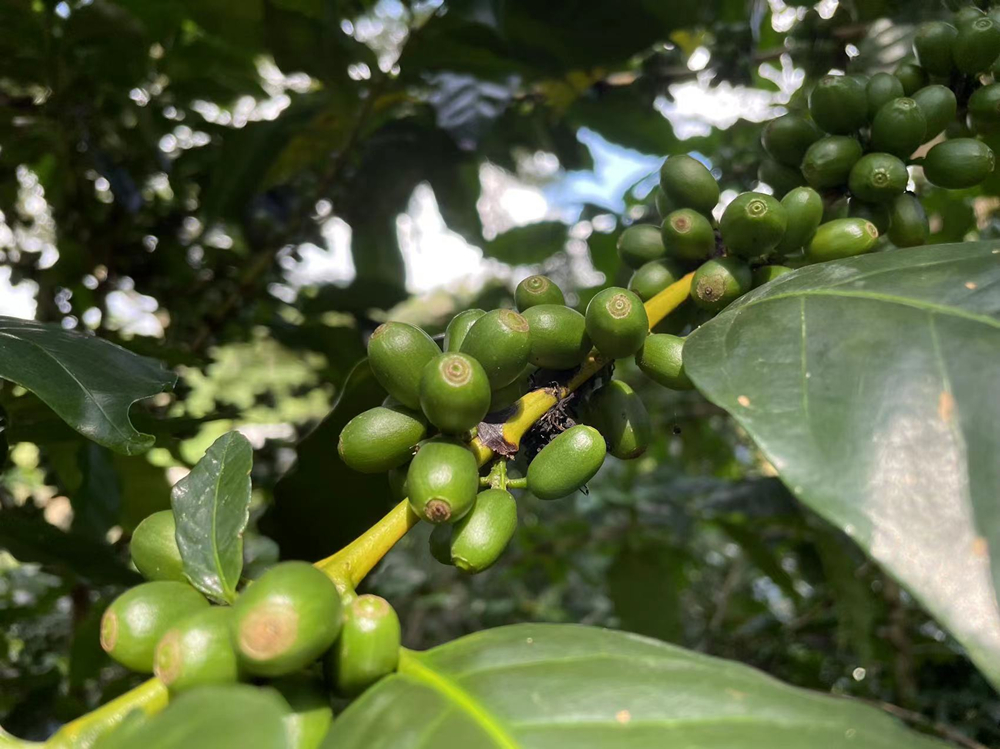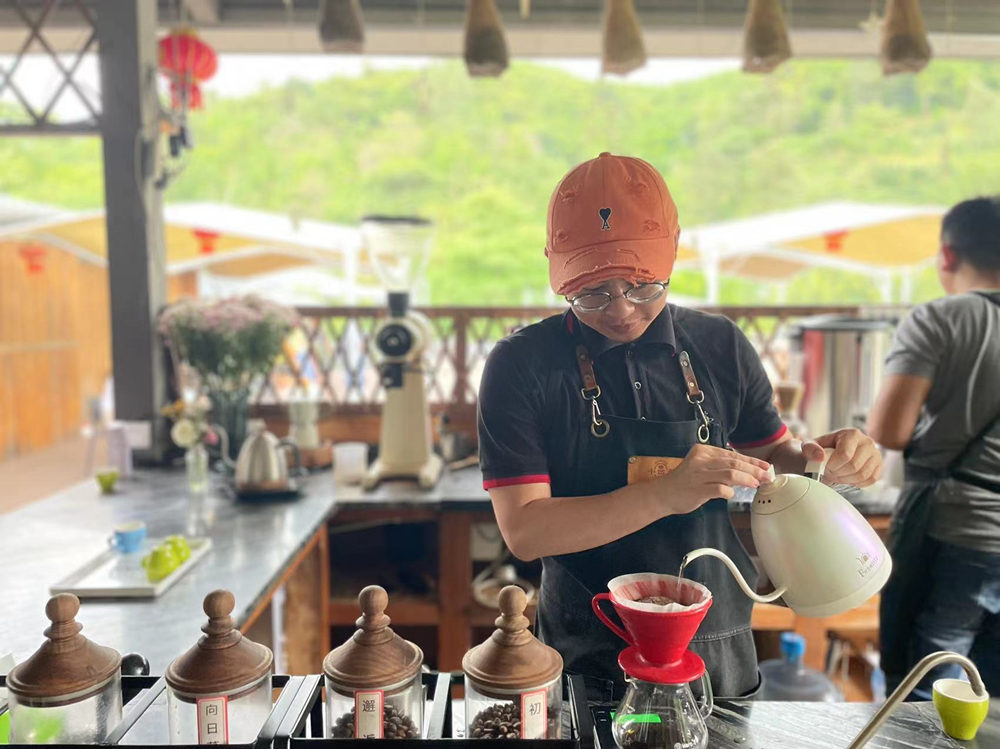China-Laos Railway spurs growth of coffee, tea industries
 "I happened to see on social media that this coffee farm was looking for volunteers. So I packed up and came to Pu'er right away," said Mr. Hu, a native of east China’s Shanghai city.
"I happened to see on social media that this coffee farm was looking for volunteers. So I packed up and came to Pu'er right away," said Mr. Hu, a native of east China’s Shanghai city.
On August 10, Hu and other fellow volunteers were busy making hand-brewed coffee for tourists at the Xiao’wazi Coffee Farm in the mountains of the Nandaohe village of Simao district, southwest Yunnan’s Pu'er city.
Hu wanted to be on the Yunnan farm for two weeks and believed that this volunteering trip would not only enhance his understanding of professional coffee, but also allow him to get closer to nature.

 Established in February 1997, the coffee farm has been run by the 80-year-old Liao Xiugui and his family. The old man was one of the first coffee professionals introduced to Pu'er.
Established in February 1997, the coffee farm has been run by the 80-year-old Liao Xiugui and his family. The old man was one of the first coffee professionals introduced to Pu'er.
Being green and environment-friendly has always been a distinct feature of the small farm. "Over the past two years, Pu'er coffee has gained popularity among more consumers,” said Liao Hongwen, son of Liao Xiugui.
After the opening of the China-Laos Railway, more visitors have come here with simply outside visitors accounting for up to 85%, according to the son. This rail-side farm has gained fame online, going viral on social media.
The railway has also brought Pu'er more opportunities for further development. Local coffee and tea industries are going through upgrades.

 Pu'er, Yunnan province, is the birthplace of tea and is also an advantaged place to plant coffee. Not only was the renowned Pu'er tea born here, it is also China's largest planting area and trade distribution center of coffee with the best quality.
Pu'er, Yunnan province, is the birthplace of tea and is also an advantaged place to plant coffee. Not only was the renowned Pu'er tea born here, it is also China's largest planting area and trade distribution center of coffee with the best quality.
From July on, the farm has witnessed more than 200 tourists per day, with the daily number exceeding 400 on weekends.
Source: Yunnan Daily app; Trans-editing by Wang Yunya








